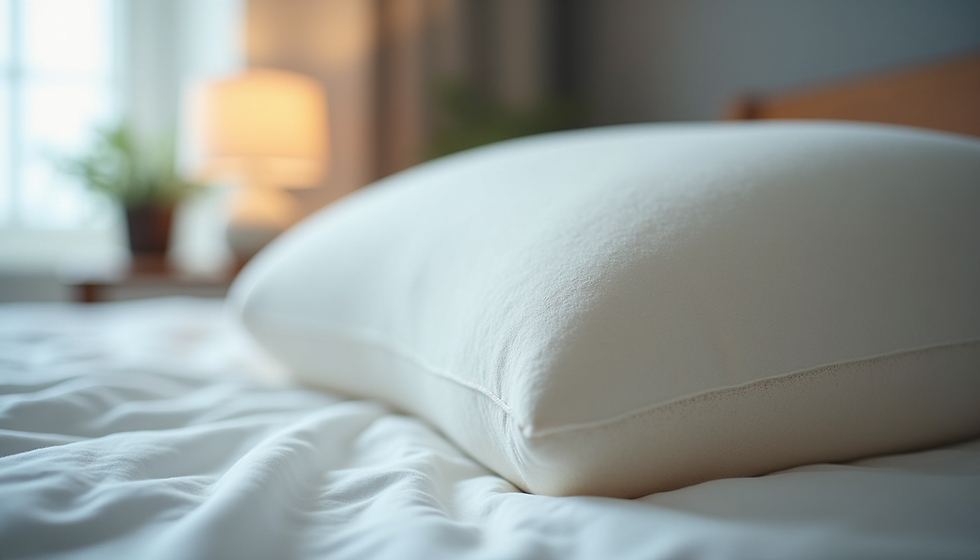Is exercise or sleep more important?
- Sarah Berry
- May 17, 2019
- 4 min read

Many of us don’t get enough sleep and even fewer do enough exercise. So, do we hit the snooze button to get an extra hour of sleep or drag our sorry selves out of bed to squeeze in a workout before work? The short answer is: it depends. If you are already getting eight or nine hours sleep a night, then shaving an hour off won’t hurt so slug back a coffee (it can improve your workout) and do not miss the chance to move. On the other hand, if you’re already on the cusp of what is considered a healthy amount of sleep then cutting it down even further will have consequences, explains Professor Greg Roach from the Appleton Institute for Behavioural Science. “Once you get to six hours a night you’re going to have impaired mental performance, you’re going to be sleeping during the daytime, you’re going to be cranky with your colleagues and family, in the long-term you’re going to have poorer health outcomes,” warns Roach, whose research specialty is sleep. Physical activity is potent, but whether you should swap sleep for it depends. The decision to get an extra hour of sleep in place of strapping on your trainers also depends on the frequency of the swap. “When you really, really need to sleep the best thing to do is sleep and to sacrifice [exercise] then,” says Tim Olds, a professor of health sciences at the University of South Australia. “The benefits of physical activity are reasonably durable ... missing a day or two of physical activity is not so bad.” Sacrifice exercise for sleep routinely, however, and health starts to suffer. “The general picture is this – physical activity, particularly vigorous physical activity, is incredibly potent,” Olds says. “Even just a few minutes of it will outweigh hours of sitting or half hours of increased sleep.” Physical activity is what researchers call pleiotropic, Olds explains, which means it has an effect across a whole range of health outcomes, everything from diabetes and cardiovascular disease to depression and stress. “Physical activity is the overwhelmingly strong factor,” he stresses. Curious about the way we use our time and how it affects our health, Olds’ latest research explored some of the trade-offs we make (like sleep for exercise, or exercise for sleep). He found that for stress reduction, to get the equivalent benefits of 20 minutes of physical activity you would need to sleep two and a half hours more. “For overall mental health it would be about 1.5 hours more,” he says. “For general wellbeing, sleep seems to be the big ticket item but for all the others, minute for minute, physical activity gives you more bang for buck.” Exercise also improves the quality of our sleep, leading to more slow wave sleep, the “deep sleep” that is important for consolidating memories, and, paradoxically, can reverse some of the effects of insufficient sleep. Preliminary research by Professor Roach and Professor David Bishop from Victoria University’s Institute of Health and Sport has explored how sleep affects mitochondrial function, which Roach explains is essentially “how effective their muscles are at converting glucose into a usable energy source”. In a group that slept only four hours a night, mitochondrial function was impaired, but daily high intensity interval exercise sessions (comprising of 10 rounds of 60 seconds “going full on” on an exercise bike) reversed the impairment due to the sleep loss. “The message people should not take away from that is that you should run your sleep down to four hours a day and do 20 mins of exercise and you’ll be fine,” Roach cautions. “We found that for that one particular aspect of health. It has nothing to do with how well you do your job, how well your family and team can tolerate you, how likely you are to fall asleep when you’re driving to work or home from work.” Sleep seems to be the big ticket item but ... minute for minute, physical activity gives you more bang for buck And this is where the trade-offs become complicated to calculate. Comparing sleep and exercise is “not symmetrical” Olds explains. We don’t have to swap hour for hour or minute for minute. An extra 20 sleep and 10 minutes of intense exercise can make all the difference. And although his own research has found that exercise is more effective than sleep at reducing premature death by any cause, Professor Emmanuel Stamatakis of the University of Sydney’s School of Public Health is reluctant to compare the two. “Although physical activity and sleep are different biological states they are both hugely important for health. We should think of them as two treasured aspects of our lifestyles that are both under threat in modern societies,” he adds. “There are many some common denominators there, for example excessive screen use/screen addiction and time poverty, both of whom make physical activity and exercise a low priority.” So perhaps the question shouldn’t be whether we swap exercise for sleep or vice versa, but whether we are prepared to swap some sitting time for exercise and staying up late on our screens for sleep?
From SMH









Comments